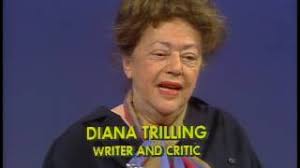3. David Shields
“UC
Berkeley lists the use of the phrase ‘America is the land of opportunity’ as a
macroaggression.” –David Shields

When I first
discovered David Shields, I spent an entire weekend reading him. I went to my
local library and checked out two of his books—his 2010 manifesto Reality Hunger and his then-most recent
book, How Literature Saved My Life—and
holed up on my couch, knocking one off on a Saturday and the other the next day.
On Sunday evening, I wrote up a response, cataloging my numerous objections to
what I had just spent a weekend avoiding all social contact to take in.
My beef with
Shields was not too different from that of the numerous pundits who had taken
to the page to express their outrage: his dismissal of any form of literature
that wasn’t collage-based-essay or meta-memoir (i.e. the “traditional” novel)
seemed far too essentialist, his call for the permanent blurring of the
fiction/non-fiction divide potentially dangerous. And yet, there was something
in what Shields was getting at that I couldn’t shake, this idea that so much of
well-regarded contemporary literature was a put-on jived with a creeping sense
I was already feeling, and the license to completely dismiss whole reams of
literary product felt hugely liberating. Before long, my objections were
overcome, and I became a convert to the Shields way, embracing a collage
approach in my own writing. It helped, too, that Shields frequently highlighted
the work of writers he admired and who illustrated his preferred methodology
more artfully than he could in his own work. In this way I discovered books
like Maggie Nelson’s Bluets and the works of David Markson, titles that I should probably have been able to
discover without Shields’ help but wasn’t and which proved foundational to my
evolving sense of myself as a writer.
All that seems
like another era now, both in the literary world and in the larger world as
well. That exciting moment—which I myself came to late, after the general
excitement had largely expired—when the lyric essay reigned supreme, that two
year period (2009-2010) in which Shields, Nelson, John D’Agata, and Eula Biss
all published work that seemed to finally advance the literary enterprise into
what it needed to be for the 21st century, seems long gone. Of the
above-mentioned quartet, none except for Shields has published a book of
original work since at least 2015.
As for D.S., he
remains as prolific as ever, but his particular brand of white male
self-satisfaction feels increasingly like a relic from another time. This
proves to be especially the case in his recent book Nobody Hates Trump More Than Trump: An Intervention. Employing (as
skillfully as ever, it must be admitted) his trade-mark collage technique,
Shields first attempts to psychoanalyze the president and then to implicate
pretty much the whole of American society, with its fascistic tendencies major
and minor, in his election, all in an attempt to solve his self-described
“detective story,” to get to the bottom of Trump, as person, political figure,
phenomenon.
Although
occasionally interesting, particularly during the few moments of
self-reflection (he quotes a “friend” comparing the “David Shields brand” to
Trump’s), this is one of the writer’s least palatable projects, the product of
both an almost unbearable bitterness and a more-or-less closed worldview. These
qualities both come to the fore in a section entitled “28 Reasons Trump Will Be
Re-Elected,” which offers up exactly what it promises. The list trades heavily
in the received wisdom that coastal elites are completely out of touch and
that’s why we have Trump, surely the least felicitous critical analysis to pop
up in the wake of the 2016 election. Whether it’s colleges like U.C. Berkeley
with their alleged coddling of the sensitive youth, the popular trend of no
platforming offensive speakers, or a general disregard for the values of the
heartland, Shields turns the blame on so-called P.C. culture, offering up a
reading of the country’s politics that is more offensive than enlightening.
While I suppose
I’ll always be grateful to Shields for shaping the course of my writing life, I
can’t say I’m particularly looking forward to seeing what he does next (and he
already has a new book out!) In just under a decade, he’s gone from a person who
productively pissed off the right people to a man who few consider it
worthwhile reckoning with. Part of that is the change in literary and world
culture, but part of that is the hardening of certain qualities that inevitably
come from decades of being an active writer. If these qualities, in Shields’
case, tend toward the distasteful, then, personally speaking, I do find it more
than a little sad. As people in the world, we are forced to constantly rethink
our preferences in the light of new information or new ways of thinking. It is
a necessary but dispiriting process.


Comments
Post a Comment